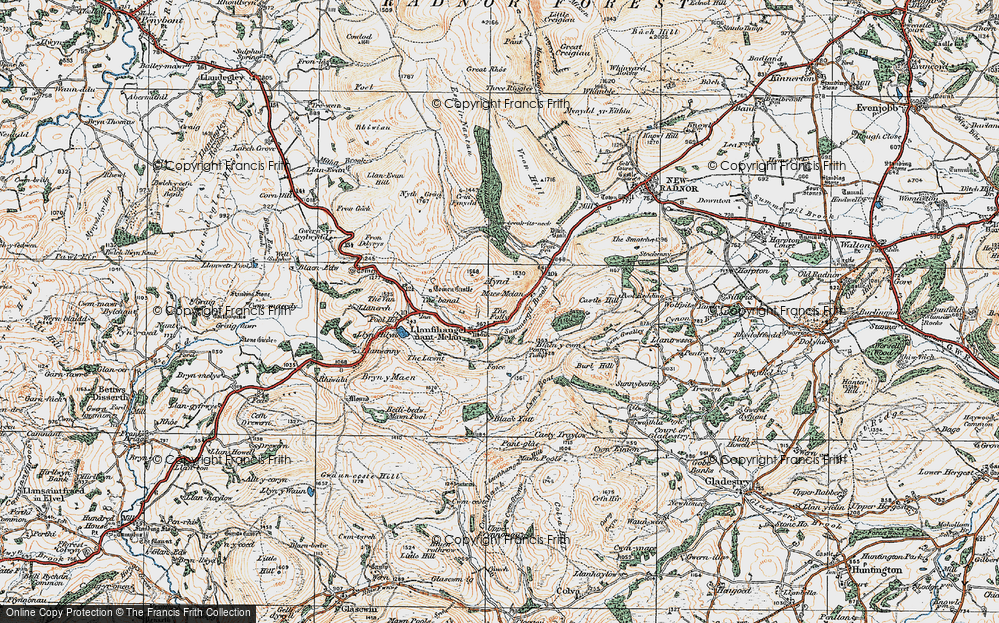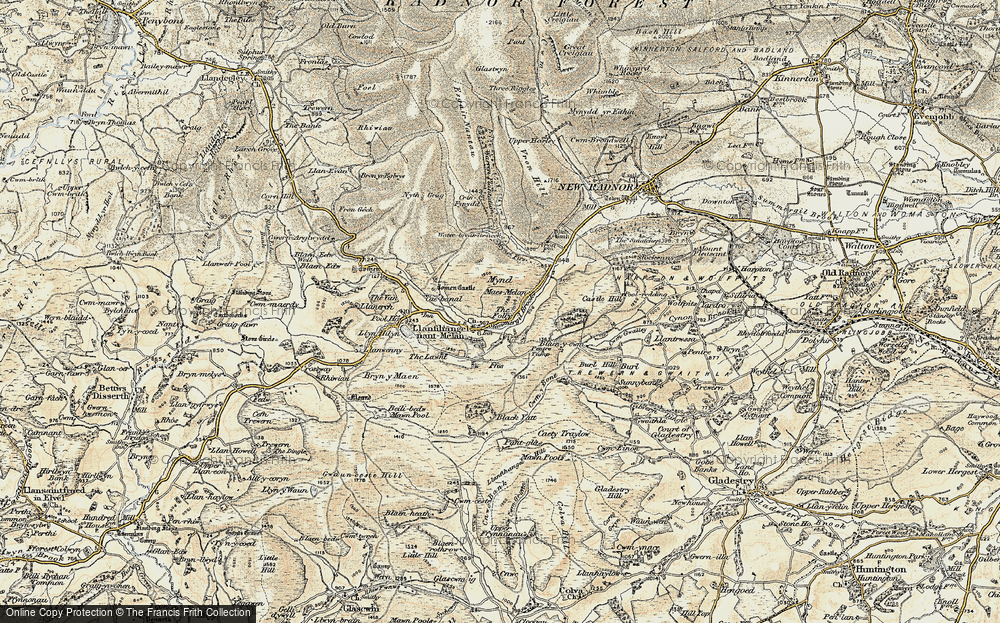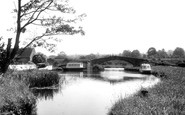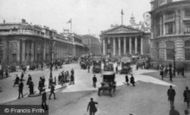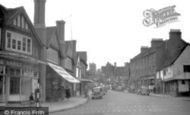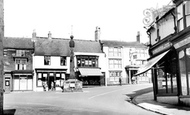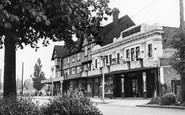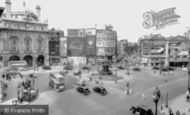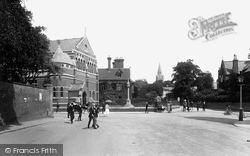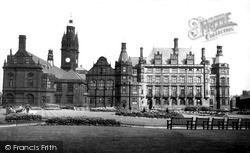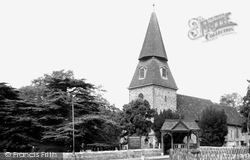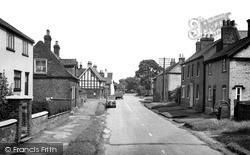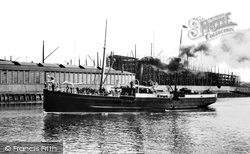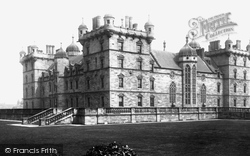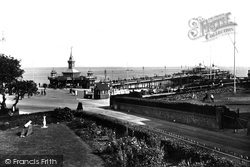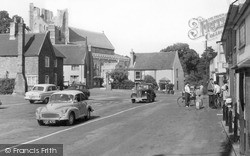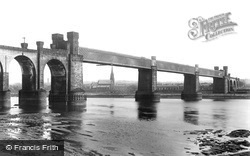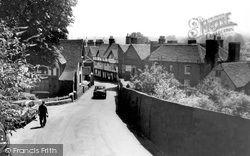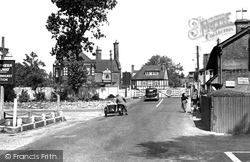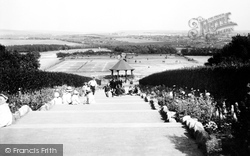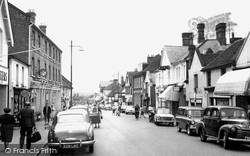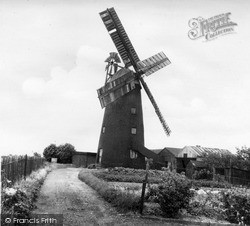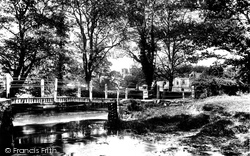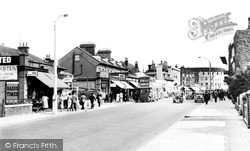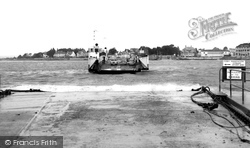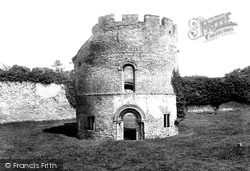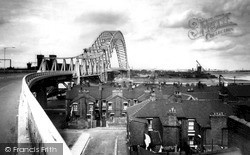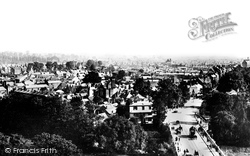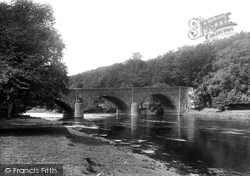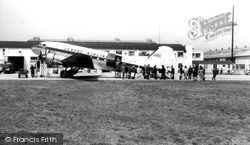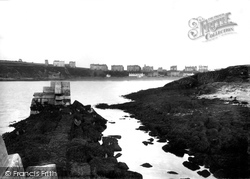Places
1 places found.
Those places high-lighted have photos. All locations may have maps, books and memories.
Photos
Sorry, no photos were found that related to your search.
Maps
22 maps found.
Books
1 books found. Showing results 25 to 1.
Memories
421 memories found. Showing results 11 to 20.
Bailey Bridge Pontoon Canal Cruisers.
I built the boat shown on the right hand side of the photograph. Bailey Bridge pontoon MKVI N0.19053 was manufactured by Gee Walker & Slater Ltd, Uttoxeter Road, Derby and sent to Engineers Stores, US ...Read more
A memory of Great Haywood in 0 by
The Bank Of England
The "Bank" has occupied this site since the late seventeenth century. Although you cannot see from either this view or indeed from the street, there is an exquisite garden and lawn in the centre! The Bank underwent an extensive ...Read more
A memory of London in 1963 by
The Gents'' Barbers In Pinner High Street
This 1955 view of Pinner High Street brings back my memories of haircuts after school. About half way "up" the High Street on the right is a gents' barbers. During my schooldays at Pinner Grammar School from ...Read more
A memory of Pinner in 1956 by
Dads Shop
This was my Dad's shop where he started his butchering business in the 1930's till, he closed in 1973. Both my brother Tom and I worked there. Tom from 1955 till it closed and I began in 1962 and left in 1966, for Australia. In those ...Read more
A memory of Guisborough by
My Dad's Memories Of The Boys Garden City (Bgc)
My Dad, Thomas Brisland lived at the BGC for 9 years from around 1924. He was housed in Natal Cottage with 34 other boys and they were cared for by a matron and a house mother. The matron was Mrs. ...Read more
A memory of Woodford Bridge by
Victory Parade And The Sudden Downpour
What memories this picture brings back to life again!! I had just been discharged from the Fever Hospital having spent six weeks there with Scarlet Fever. Nothing was going to stop me from taking part in the ...Read more
A memory of Pitsea by
Life In Burghfield In The 1950s
The passageway led from Clayhill Road all the way through the village, and came out on the Reading Road, some 2 miles away, the passageway was used by us children daily as a short cut to school, and it went ...Read more
A memory of Burghfield Common in 1955 by
Early Mobile Days In Welling
Light-years before the introduction of the mobile phone, Welling in the 1950's had mobile networks of its own. These were weekly delivery services to households in and around local streets. As a young child I was always ...Read more
A memory of Welling by
Early Career Memories At Piccadilly Circus.
I started my career in January 1959 as a young bobby at West End Central Police Station Savile Row. The trestles positioned to the east of 'Eros' which cordon off the road suggest the photograph was taken ...Read more
A memory of London in 1959 by
Boyhood
I was born in 1922 in Mundford where my Father was the village policeman. We had no motor car, indeed in those days there were not many people who could afford this luxury. The village was small, however it was self-contained and provided ...Read more
A memory of Mundford in 1920 by
Captions
469 captions found. Showing results 25 to 48.
The school was originally located in premises opposite the parish church, but had moved to its present site to the south of the town by 1750; rebuilding began in 1809.
In 1973 construction began on the Town Hall extension, a modern office block linked to the rear of the existing building by means of a first-floor bridge.
This church began life in the 12th century, and underwent a major restoration in the 19th century. The tower stands out because of its unique design of an unusual octagonal shingled spire.
The canal and the railway brought prosperity to Hungerford, though the town's golden era began with the turnpiking of the Bath Road in the 18th century.
The Hayride, which takes place in Walkington on the third Sunday in June, began after the Second World War.
In 1900 the Midland Railway began to develop Heysham as a cross-channel port, ordering four new steamers for the route.
Construction began on the hospital in 1628, but it was not completed until 1693 when it saw service as a military hospital.
Victorian entrepreneurs soon became aware that people liked to walk out along them, and began to provide attractions and charge admittance.
The upper part of the tower collapsed in 1830, and it was not until the early 1960s that reconstruction began, ending in 1971.
Work began in 1864 to construct a line from Weaver Junction to provide the LNWR with a more direct route from London and Crewe to Liverpool.
In this view of the road near the church, the quiet nature of the road is clearly visible, recalling a typical village scene before the car began to strangle the English village.
Thanks to a railway station providing train services to London, Brockenhurst began to expand during the second half of the 19th century and continued to develop in the 20th century, establishing itself
The land for the park, off Abbey Road, was purchased in 1904, and work on creating it began in 1907. Here, children are playing on the steps leading down to the bandstand, which has now gone.
With New Town status and under the aegis of the Development Corporation, Bracknell began to expand rapidly.
It fell into disrepair until 1970 when its restoration began, and it has been working again, grinding corn, since 1992.
Work began around 1389, with only the keep being retained. The entire inner ward was rebuilt and included a great hall, private apartments, kitchens and store rooms.
Slough began to expand following Slough Estates' acquisition of 700 acres of derelict land in 1920.
The chain ferry began in 1926, saving 15 miles on the journey to Swanage.
Round chapels such as this are extremely rare; they were usually associated with the Knights Templar (as was the case here), a movement that began in England in 1128.
Demolition of houses along the route of the approach roads began in 1956 so that although the bridge itself cost £3 million, the approach roads added a further £1.5 million to the bill.
Later, Cowley was to change forever when the motor industry began to envelop this corner of the city in the early years of the 20th century.
The ferry boat at Hacking End once took people across for one penny, a long-established custom, so old that it is not known when it began; but in the 1930s the practice finished.
Southampton Airport lies to the south of Eastleigh town centre; it was from here that the first Spitfire began her maiden flight in 1936.
Work began in 1864, but in 1868, while still under construction, it was badly damaged by a storm; it was not until the following year that Tynwald voted funds for repairs and completion.
Places (1)
Photos (0)
Memories (421)
Books (1)
Maps (22)


